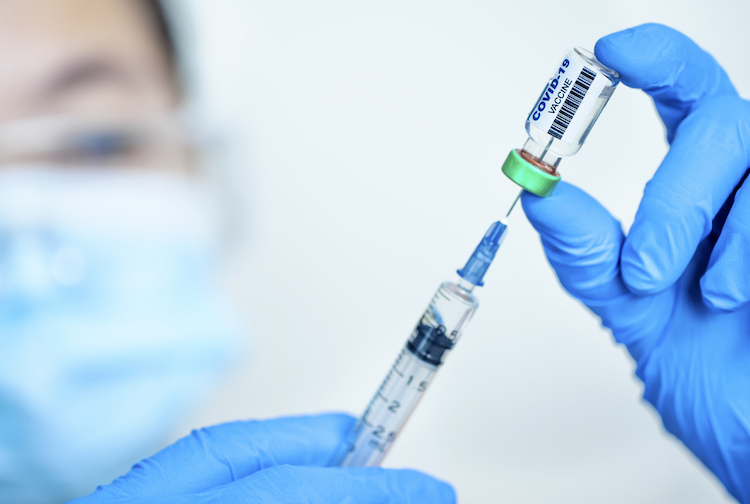
Four things to know about the new COVID-19 vaccine
As hospitalizations due to COVID-19 continue nationwide, VCU Health infectious disease experts highlight the importance of voluntary vaccinations to reduce severe illness and potential long-term symptoms.
September 14, 2023 The updated mRNA COVID-19 vaccine is expected to be available across the country in the coming days. (Getty Images)
The updated mRNA COVID-19 vaccine is expected to be available across the country in the coming days. (Getty Images)
By Sara McCloskey
The Federal Drug Administration recently approved an updated COVID-19 vaccine, which should soon be available across the United States.
The new vaccine arrives as hospitalization rates due to COVID-19 continue to rise nationwide. Health experts are also concerned about the potential of another “tridemic” or “triple epidemic” of influenza (flu), respiratory syncytial virus (RSV) and COVID-19 as the fall and winter approach.
“This year we will have the benefit of targeted vaccines for each of these 3 respiratory viruses with the updated COVID-19 vaccines and the new RSV vaccines,” said Michelle Doll, M.D., system hospital epidemiologist for VCU Health and medical co-director of the Virginia Infection Prevention Training Center.
With the new mRNA COVID-19 vaccine being approved Sept. 11, federal officials expect it will be available in pharmacies, doctor’s offices and other locations by the middle of the month. The vaccine is being manufactured by the pharmaceutical companies Moderna and Pfizer, which also produced previous vaccines and boosters.
Here are the top four things to know the new COVID-19 vaccines:
Anyone 6 months or older can get the updated mRNA COVID-19 vaccine.
The Centers for Disease Control and Prevention is recommending that everyone 6 months and older get the updated vaccine.
“Even if you have already received previous COVID-19 vaccination and/or been infected with COVID-19, the new vaccines are still recommended as better protection against the recently circulating virus strains,” Doll said. “Similar to previous vaccines, these will also reduce your chances of developing long-term symptoms from the virus, called long COVID, which experts at Virginia Commonwealth University and VCU Health are currently studying.”
Even if someone has not received a COVID-19 vaccine or booster before, they are able to get a single dose of this new booster. If someone recently received one of the older COVID-19 shots, they could get the new vaccine at least two months later.
Young children from 6 months to 4 years old who have been previously vaccinated against COVID-19 are eligible to get the new shot, under an emergency use order. The overall timing of the shots and the number of doses should be discussed with your primary care physician.
Experts expect this shot will provide good protection against currently circulating COVID-19 variants.
A dominant strain of COVID-19 earlier this year was Omicron variant XBB.1.5, but now increasing hospitalizations are connected to a related strain called EG.5, or Eris. This variant is suspected to be highly contagious, so it spreads easily, but there isn’t much evidence that it causes the general public to become severely ill.
The updated mRNA vaccine was developed with a component that corresponds to XBB.1.5 and was specially created to target current strains, like EG.5.
The new mRNA COVID-19 vaccine was developed like annual flu shots.
mRNA COVID-19 vaccines are developed to teach your body to make a specific protein to trigger immunity from a virus. The technology to make these immunizations has been studied for decades and is commonly regarded as safe.
It has also been used to make annual influenza immunizations. And much like the flu shot, the FDA anticipates COVID-19 vaccines will need to be updated every year in the future.
One caveat is that the flu and COVID-19 are constantly evolving, so new variants may spread that scientists could not consider when developing a vaccine.
Once the updated vaccine is widely available, the previous bivalent boosters from Moderna and Pfizer-BioNTech will no longer be used.
Since the updated mRNA vaccines were approved by the FDA, the previous vaccines on the market are no longer authorized to be used in the United States as of Sept. 11. This move ensures that all who are eligible to receive the vaccine are getting the most recent version.



